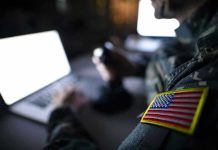
After a chilling antisemitic attack in Boulder, Colorado, Senator Ted Cruz launches a bold legislative push to officially designate the Muslim Brotherhood as a terrorist organization, potentially disrupting decades of radical Islamic influence within America’s borders.
Key Takeaways
- Senator Ted Cruz is renewing his decade-long effort to designate the Muslim Brotherhood as a terrorist organization following an antisemitic attack in Boulder, Colorado, where the suspect expressed support for the group.
- The bipartisan push has gained momentum with Representatives Jared Moskowitz, Randy Fine, and potentially Debbie Wasserman Schultz signaling support for the designation.
- Several countries including Saudi Arabia, Egypt, UAE, Bahrain, and Russia already classify the Muslim Brotherhood as a terrorist organization.
- The designation would allow the freezing of assets and curtailing of the group’s influence but could complicate U.S. relations with countries where the Brotherhood provides social services.
- Supporters argue the designation is necessary for national security, while legal requirements specify that terrorist designations must be based on violent actions, not ideology alone.
Boulder Attack Sparks Renewed Action Against Muslim Brotherhood
Following the recent antisemitic attack in Boulder, Colorado, Senator Ted Cruz and a growing coalition of lawmakers are advancing legislation to designate the Muslim Brotherhood as a foreign terrorist organization. The attacker, Mohamed Sabry Soliman, reportedly expressed support for the Muslim Brotherhood and its former leader Mohamed Morsi in social media posts. This connection has reignited a long-standing debate about how the United States should classify and respond to the global Islamist movement that has been linked to extremist ideologies.
Senator Cruz, who has advocated for this designation for over a decade, is preparing to introduce a “modernized version” of the Muslim Brotherhood Terrorist Designation Act, originally introduced in 2014. The legislation would require the administration to assess whether the organization meets the criteria for designation as a foreign terrorist organization, potentially allowing the government to freeze assets and criminalize support for the group. Cruz’s bill has gained renewed attention as lawmakers grapple with the implications of the Boulder attack.
Bipartisan Support Growing for Terrorist Designation
The push to designate the Muslim Brotherhood has attracted support from both sides of the political aisle. Representative Jared Moskowitz has urged President Trump to investigate the group thoroughly, while Representative Randy Fine has gone further, suggesting that affiliated organizations like the Council on American-Islamic Relations (CAIR) should also be designated as terrorist groups. Fine’s comments highlight concerns about the interconnected network of organizations that critics say advance the Brotherhood’s agenda within the United States.
“The Muslim Brotherhood and the jihadists believe in using violence, using murder to force people to embrace their radical Islamist view,” said Sen.Ted Cruz.
Even Democratic Representative Debbie Wasserman Schultz has indicated potential support for the designation, expressing surprise that it hasn’t already happened. This unusual bipartisan convergence suggests a shifting consensus on national security threats. Cruz and his allies anticipate support from President Trump, who has consistently prioritized strong national security measures and combating Islamic extremism throughout his administration. The growing coalition demonstrates the seriousness with which lawmakers are viewing the threat posed by the Muslim Brotherhood’s ideology.
International Precedent and Domestic Implications
The United States would not be breaking new ground with such a designation. Several countries, including Bahrain, Russia, Saudi Arabia, Egypt, and the United Arab Emirates, have already classified the Muslim Brotherhood as a terrorist organization. These nations have taken strong stances against the group based on their experiences with Brotherhood-affiliated movements within their borders. The proposed American designation would align U.S. policy with these allies while potentially strengthening international cooperation against extremist networks.
“It’s clear that the link is there, and the dangers of the school of thought and this ideology have arrived in the United States, are impacting us domestically. We’re seeing more attacks under this ideology,” Said Ahmad Sharawi from the Foundation for Defense of Democracies.
However, experts caution that the designation could complicate U.S. relationships with countries where the Brotherhood maintains a less radical presence and provides social services. Ahmad Sharawi notes, “In some of these countries, the Muslim Brotherhood is part of the state structure. And so designating it as a terrorist organization would harm the relationship between the U.S. and these countries.” This diplomatic complexity underscores the challenge of crafting effective counterterrorism policy that accounts for the group’s varied manifestations across different regions.
Legal Hurdles and Next Steps
Despite growing political support, the designation process faces legal hurdles. U.S. law requires terrorist designations to be based on violent actions, not merely ideology or politics. This standard necessitates specific evidence linking the Muslim Brotherhood as an organization to acts of terrorism. While individual members or affiliated groups may have engaged in violence, proving that the organization itself directs or coordinates such actions presents a significant challenge for lawmakers and security agencies seeking the designation.
“The Muslim Brotherhood used the Biden administration to consolidate and deepen their influence, but the Trump administration and Republican Congress can no longer afford to avoid the threat they pose to Americans and American national security,” Said Sen.Ted Cruz.
Senator Cruz’s legislation would mandate a thorough assessment of the Muslim Brotherhood’s activities, potentially providing the evidentiary basis needed for designation. As the debate continues, law enforcement authorities are investigating any further connections between the Boulder attacker and organized extremist networks. The case highlights the complex relationship between ideology, organizational affiliation, and violent extremism that policymakers must navigate as they work to enhance national security while respecting legal standards and constitutional protections.


















